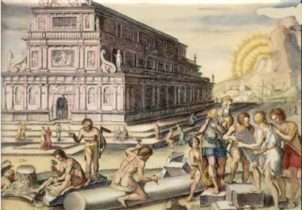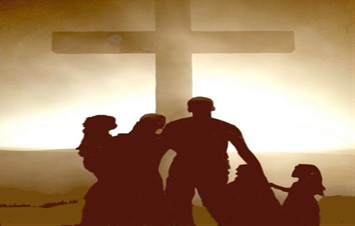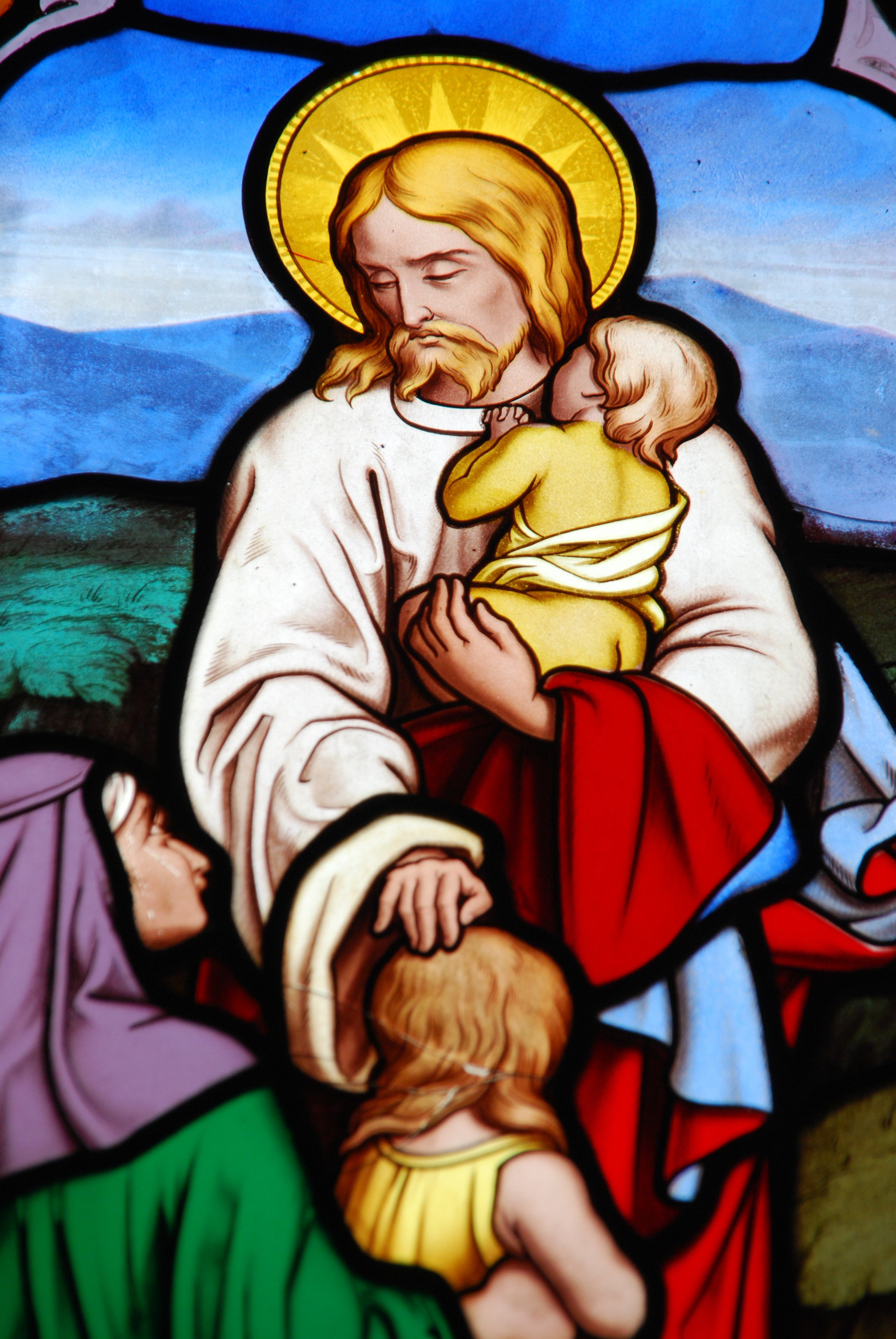Problems facing the Colossian Church We face Today

It is our responsibility as women of Christ to be able to identify the pit falls in our generation. This is so we may help those put in our trust to make their struggles easier or maybe even to avoid the dangers all together.
Comparing the Church at Colossae and Gnosticism in our society today will reveal there are similarities. This would indicate our churches are in the same kind of danger that faced the Christians in the Colossian church.
During the time of Paul Colossae was religiously multicultural. The deities the Colossians worshiped were Artemis, Helios, Demeter, Men, Isis, and Serapis. The Ephesian Artemis called by the Greeks, the “great mother goddess” and Diana called by the Romans. She is depicted as the goddess of the wilderness, the hunt and wild animals, and fertility. She is the helpers of midwives as a goddess of birth. There are also a number of well-known Greek divinities, including Athena, Demeter, Hygieia, and Tyche. It is likely that other distinctively Asia Minor deities would have been worshiped there as well, such as the mother goddess, Cybele, and the goddess of witchcraft, Hekate. (Arnold. 2002. P. 373). Acts 19 tells us there was a silversmith named Demetrius who made silver shrines for Diana for money. This was not only seen in Ephesian but throughout all Asia. Paul tried to persuade them to turn away the people, saying that there is no gods, which are made with hands. Paul warned that this craft of making shrines of goddesses was dangerous and should not be. The temple of the great goddess Diana should be despised, and her magnificence should be destroyed, whom all Asia and the world worshipped. (Acts 19:23-28).
Money, beauty, fashion, people in power including celebrities, the worship of nature and the land could be considered as gods that are placed higher than the LORD God in our society today. The names have changed from Ephesian Artemis or Diana to sex and lust. The Greek goddess Athena the goddess of wisdom, war, the arts, industry, justice and skill is this not the same as worshiping people in power or just worshiping power. (Smith. 2012). Demeter is a goddess of fertility, grain, and agriculture. (Smith, 1998. P.59). This could be an example of the worship of nature. Hygieia was the goddess of health, cleanliness and sanitation. She was associated with the prevention of sickness and the continuation of good health. (Merriam-Webster. 2003). We all know someone who so worships their bodies that they become obsessed with their own health. It is not man who heals and promotes good health it is the LORD. Tyche is the Greek goddess of the spirit of fortune, chance, providence and fate. (Sailer. 2012). Society today believes that everything is in their control. Instead of allowing the LORD to control our destiny there are far too many putting their trust and control on the spirit of fortune.
There is nothing wrong with having riches, power, a great career, or great health. These are attributed that are meant to be tools. These are not to be our tools that give us our purpose for our lives. We do not need to worship the goddess of the worldly. We need to worship the LORD God who gives us everything. “Love not the world, neither the things that are in the world. If any man love the world, the love of the Father is not in him. For all that is in the world, the lust of the flesh, and the lust of the eyes, and the pride of life, is not of the Father, but is of the world.And the world passeth away, and the lust thereof: but he that doeth the will of God abideth for ever. (1 John 2:15-17).
Another problem facing the Colossian Church was Gnosticism. It was the look at the first symptoms of the practice of Gnosticism. Gnosticism was a philosophical system built on Greek philosophy. Gnosticism was related to knowledge, especially mystical knowledge. It was considered to especially been rooted in Greek philosophy and teachings of Plato stating that the knowledge of God belonged to the higher reason, and identified the spiritual man with the philosopher. (Ferguson, 2005. P. 92). Gnosticism was a collection of a series of personal distinctive responses to the religious condition made by teachers who did not think of themselves as weird or different just superior. Paul and John in the New Testament showed susceptible of Gnostic interpretation, so that some modern scholars see these New Testament authors as employing Gnostic thinking in formulating their own ideas. It is a radical belief system that mixed pagan ideas, Greek philosophy, mysticism and human reasoning with perverted explanations of Scripture. (Ferguson, 2005. P. 94).
Gnosticism was built on Greek philosophy that taught that matter was evil and the Spirit was good. The Apostle Paul fought against the Gnostics idealism claiming since according to them matter was evil, the LORD God could not really incarnate in a human body. He only appeared in human form and only appeared to suffer, it was an illusion. It was stated when Jesus walked on the sand you could know by seeing his footprints that were left. The Gnostic’s believed Jesus could be a pure spiritual being in an evil world and not be contaminated by it. The Gnostics claimed knowledge of God what was only exclusive only to them. (Elwell. 2001. p. 485).
The Apostle Paul emphasized that wisdom and knowledge only comes from the LORD God. Paul warned not to be spoiled through philosophy and vain deceit, after the tradition of men, after the rudiments of the world, and not after Christ. It is in Christ who dwell all the fullness of the Godhead bodily. (Colossians 2:8-9). We are neither to give heed to fables and endless genealogies, which minister questions, rather than godly edifying which is in faith. (1 Timothy. 1:4). We are to shun profane and vain babblings: for they will increase unto more ungodliness. Paul mentions Hymenaeus and Philetus who are heretics and oppose Paul. They have erred, saying that the resurrection is past already; and overthrow the faith of some. Nevertheless the foundation of God stands sure, having this seal; The Lord knows them that are his. And, Let everyone that names the name of Christ depart from iniquity. (2 Timothy 2:16-19).
Salvation to the Gnostics came by knowledge and experience. Those who did not have this knowledge were associated with ignorance. They received direct revelation from the Spirit which was more important than the word. Gnosticism also taught a dualism of soul and body. They taught that only the former being was significant for salvation; and a hierarchy of spiritual and angelic intermediaries between God and man. Gnostics claimed that Jesus had never actually come in true physical form because if he had, he’d have been corrupted by the inherent evil of the physical world but that his bodily existence had been merely an illusion. When he was crucified, his spirit fled, so that he never actually died. (Wood. 1996. P 1049).
It is the very Word of God that we know that it was with the precious blood of Christ, as of a lamb without blemish and without spot: that we were not redeemed with corruptible things, as silver and gold, from your vain behavior or conduct received by tradition from your fathers. But it was with the precious blood of Christ, as of a lamb without blemish and without spot: Who verily was foreordained before the foundation of the world, but was manifest in these last times for you, Who by him do believe in God, that raised him up from the dead, and gave him glory; that your faith and hope might be in God. We are to purify our souls in obeying the truth through the Spirit unto sincere love of one another with a pure heart fervently. (1 Peter 1:18-22).
We also know that Jesus Christ suffered for us, and this Jesus left for us an example that we should follow when we are in distressed or when we suffer. Jesus Christ did not sin, nor was there guile or deceit found in his mouth. Even when Jesus was reviled, when he suffered, Jesus did not threatened; but committed himself to the LORD God that judges righteously: Who his own self bare our sins in his own body on the tree, or on the cross, that we, being dead to sins, should live unto righteousness: by whose stripes we were made whole. (1 Peter 2:21-24).
Paul taught let us, who are of the day, be sober, putting on the breastplate of faith and love; and for a helmet, the hope of salvation. Because the LORD God has not appointed us to wrath, but to obtain salvation by our Lord Jesus Christ, Who died for us, that, whether we wake or sleep, we should live together with our Lord Jesus Christ. (1 Thessalonians 5:8-10). Paul also proclaimed to let it be it known unto you all, and to all the people of Israel, that by the name of Jesus Christ of Nazareth, whom we crucified, whom the LORD God raised from the dead, even by him does this man stand here before you whole. Jesus Christ is the stone which was despised utterly by the builders, and Jesus becomes the head of the corner that is a secret place. Neither is there salvation in any other: for there is none other name under heaven given among men, whereby we must be saved. (Acts 4: 10-12).
The Gnostics belief in this century can be seen today with those who are trying to convince us that we do not have to be told how to act, or what to believe. We should all use our brain and knowledge that it is our ability to think for ourselves and we do not need to be told by the church or any other source what to believe. What many churches are teaching today is that you can find Christ in any way you want and that the finding God is inside us not because someone teaches us. I had someone tell me that faith is not what a person believes about Jesus but what your relationship is with Him if it be good or bad.
It is certainly true that one must know what they believe and why they believe it. The Bible teaches us that we serve a Personal and Intimate Father God who loves us and cares for us: Our Father God knows what things we have need of before we even ask Him for it. (Matthew 6:8). We have been made sons of God through the Spirit of adoption and have joint heirs with Christ. (Romans 8:14-17). The LORD GOD loved the world so much that He sent His only begotten Son, that whosoever believes in Him shall not perish, but have everlasting life. The LORD GOD sent His son into the world to so the world through Him might be saved. (John 3:16-17).
The one thing we should remember when false religions try to tell us that we don’t need Jesus to reach the LORD God or that Jesus really was not what the Bible claims He was: “And if Christ be not risen, then is our preaching vain, and your faith is also vain. Yea, and we are found false witnesses of God; because we have testified of God that he raised up Christ: whom he raised not up, if so be that the dead rise not. For if the dead rise not, then is not Christ raised: And if Christ be not raised, your faith is vain; ye are yet in your sins. 18 Then they also which are fallen asleep in Christ are perished. If in this life only we have hope in Christ, we are of all men most miserable.” (1 Corinthians 15:15-19).
References:
Arnold, Clinton E. (2002).Zondervan Illustrated Bible Backgrounds Commentary Volume 3: Romans to Philemon. Grand Rapids, MI: Zondervan.
Elwell, Walter. (2001). Evangelical Dictionary of Theology: Second Edition. Grand Rapids, MI: Baker Academic.
Ferguson, Everett. (2005). Church History, Volume 1: From Christ to Pre-Reformation. Grand Rapids, MI: Zondervan.
Merriam-Webster. (2003).Merriam-Webster’s Collegiate Dictionary., Eleventh ed. Springfield, MA: Merriam-Webster, Inc.
Porter ,Stanley E. and Evans, Craig A.(2000). Dictionary of New Testament Background: A Compendium of Contemporary Biblical Scholarship, electronic ed. Downers Grove, IL: InterVarsity Press.
Sailer,William, Christman, J. Creighton, Greulich, David C. et al. (2012). Religious and Theological Abstracts. Myerstown, PA: Religious and Theological Abstracts.
Smith, Stelman and Cornwall, Judson. (1998). Cornwall, The Exhaustive Dictionary of Bible Names. North Brunswick, NJ: Bridge-Logos.
Smith, Zachary G. (2012). “Athens” In , in The Lexham Bible Dictionary, ed. John D. Barry and Lazarus Wentz. Bellingham, WA: Logos Bible Software.
Wood D. R. W. and Marshall, I. Howard. (1996). New Bible Dictionary, 3rd ed. Leicester, England; Downers Grove, IL: InterVarsity Press.
Cite Article Source
MLA Style Citation:
Holstein, Joanne “Problems facing the Colossian Church We face Today:.” Becker Bible Studies Library Oct 2014.< https://guidedbiblestudies.com/?p=1433,>.
APA Style Citation:
Holstein, Joanne (2014, October) “Problems facing the Colossian Church We face Today:.” Becker Bible Studies Library. Retrieved from https://guidedbiblestudies.com/?p=1433,.
Chicago Style Citation:
Holstein, Joanne (2014) “Problems facing the Colossian Church We face Today:.” Becker Bible Studies Library (October), https://guidedbiblestudies.com/?p=1433, (accessed).


